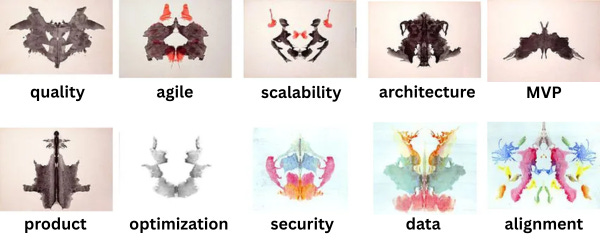You Can Challenge the Mediocracy
Tips for reducing risk by visualizing together and getting specific
For those of us striving to grow and advance in our careers, especially in tech, skillfully navigating our teams away from abstract jargon and toward concrete action can create a sea change. This shift moves us from confusing to clear, from stimulating mediocre thought to enabling epiphanies.
I remember sitting in a meeting a few months ago. The senior leader running the session was trying to inspire the team to “greatness,” but something stood out: He kept using the word “mediocracy” when he meant “mediocrity.” He then followed up with myriad abstractions like empathy, vision, resilience, and efficiency.
The term “mediocracy” refers to a system where individuals of average ability run the show, leading to subpar guidance, culture, and outcomes. It is often used pejoratively to critique environments where mediocrity is not only prevalent but also rewarded, potentially stifling excellence and innovation.
It was a small, forgivable, and ironic slip. After I recovered from a moment of schadenfreude, I decided to write about how easily abstract language can confuse and obscure real, concrete goals. The software community has long known about techniques for improving this, but it seems like folks often neglect to engage in them, despite their demonstrated effectiveness.
The problem: inkblots
We’ve all been there — sitting in a buzzword-filled project kickoff filled with buzzwords in which nothing concrete gets done. Often, this is caused by 1) vague abstractions like “innovation,” “synergy” or “quality” and 2) people running the meeting who are out of touch with the real meaning behind those words. In other words, at that moment, they can only communicate with vagueness.
I call this “inkblot communication” — and the result is that people leave the meeting interpreting what they heard in different, sometimes wildly different, ways. Then they start work based on these perspectives. This does not bode well for project success. I would place a large bet that the outcome will be many, many convoluted meetings. And we all hate meetings.


